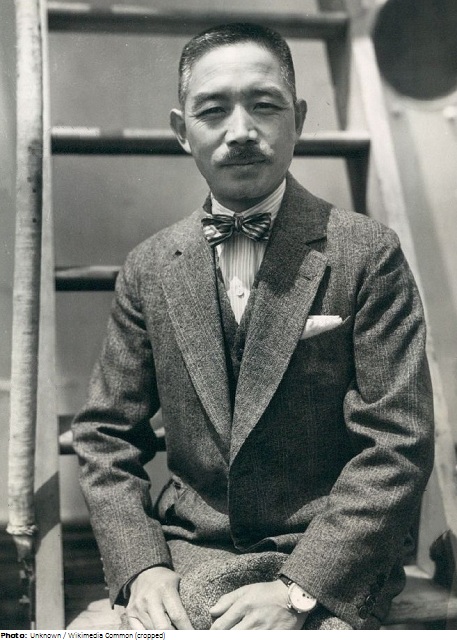
| Roles | Competed in Olympic Games • Referee |
|---|---|
| Sex | Male |
| Full name | Shunzo•Kido |
| Used name | Shunzo•Kido |
| Original name | 城戸•俊三 |
| Born | 4 July 1889 in Sendai, Miyagi (JPN) |
| Died | 3 October 1986 (aged 97 years 2 months 30 days) |
| Affiliations | Army Cavalry School, Funabashi (JPN) |
| NOC |  Japan Japan |
Although he never won a medal, Shunzo Kido can be considered one of the best-known horsemen of his time, at least in the US and his home country Japan. As at Amsterdam in 1928, he mounted his horse Kyu Gun in Los Angeles. The horse, however, was already 19-years-old and therefore initially considered as a reserve. Due to the lack of suitable horses, Kyu Gun had to compete.
Kido was placed 12th of 14 riders after the dressage. He had almost completed the cross-country phase when he noted that the horse was sweating profusely and its nostrils were flaring. He dismounted and withdrew from the competition to save the horse’s health or even life. This action was praised by many animal lovers and two plaques commemorating the incident were installed in the US – one at the World Peace Bridge on Mount Rubidoux, California in 1934, and the other at the Riverside Mission Inn. The story, however, was blown up by the press, saying that only one more successful jump would have been necessary to win the gold medal, which was far from the truth. In 1964, the plaque from the Mission Inn and the saddle that Kido used in Los Angeles were presented to Japan and are on display at the Prince Chichibu Memorial Sports Museum in Tokyo.
Shunzo Kido graduated from the Military Academy to become a cavalry officer and represented Japan in eventing at the 1928 and 1932 Olympics. At the latter, he was captain of the Japanese equestrian team. He returned to the Army Cavalry School and became an equestrian instructor. In 1934, he joined the Imperial Household and taught horseback riding to the Emperor and to Crown Prince Akihito. After the war, he served as an instructor at the former Imperial Palace Equestrian Club and as a managing director of the Japanese Equestrian Federation. He also promoted horse breeding and developing a training facility for the Olympic equestrian team in Tono City, Iwate.
When a monument to the horses that were killed in the war, approximately 1,000,000, was to be erected at the Yasukuni Shrine, sculpted by Kunio Ito, funds ran out and the project was postponed. Kide took the initiative to collect money mainly from veterans and the War Horse Memorial was unveiled in 1958.
| Games | Discipline (Sport) / Event | NOC / Team | Pos | Medal | As | |
|---|---|---|---|---|---|---|
| 1928 Summer Olympics | Equestrian Eventing (Equestrian) |  JPN JPN |
Shunzo Kido | |||
| Individual, Men (Olympic) | Kyu Gun | 21 | ||||
| 1932 Summer Olympics | Equestrian Eventing (Equestrian) |  JPN JPN |
Shunzo Kido | |||
| Individual, Men (Olympic) | Kyu Gun | |||||
| Team, Men (Olympic) | Kyu Gun / Japan |
| Games | Sport (Discipline) / Event | NOC / Team | Phase | Unit | Role | As | |
|---|---|---|---|---|---|---|---|
| 1964 Summer Olympics | Equestrian Jumping (Equestrian) |  JPN JPN |
Shunzo Kido | ||||
| Individual, Open (Olympic) | Final Standings | Course Designer | |||||
| Team, Open (Olympic) | Final Standings | Course Designer | |||||
| Equestrian Eventing (Equestrian) |  JPN JPN |
Shunzo Kido | |||||
| Individual, Open (Olympic) | Cross-Country | Course Designer | |||||
| Team, Open (Olympic) | Cross-Country | Course Designer |